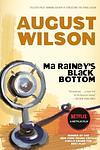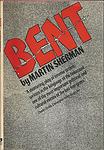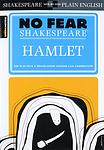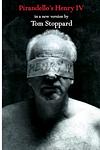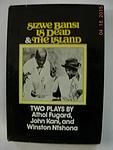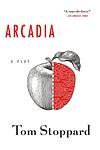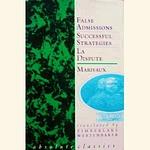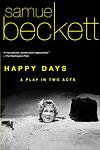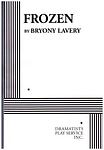The 40 best plays of all time
This is one of the 284 lists we use to generate our main The Greatest Books list.
-
Far Away by Caryl Churchill
"Far Away" is a dystopian drama that unfolds through a series of vignettes, revealing a world where everything in nature is at war. It begins with a young girl visiting her aunt, who discovers a disturbing secret that sets the tone for the play. As the narrative progresses, it becomes clear that the conflict is all-encompassing, with humans, animals, and even the elements themselves engaged in a relentless battle. The play examines themes of complicity, the blurring of moral boundaries, and the desensitizing effects of a world engulfed in perpetual conflict, all while questioning the nature of art, justice, and human responsibility in a society where the lines between right and wrong have been irrevocably blurred.
-
Blasted by Sarah Kane
"Blasted" is a controversial and provocative play that explores themes of violence, war, and human suffering. Set initially in a luxurious hotel room, the narrative follows a middle-aged journalist and a young woman as their seemingly private encounter is violently disrupted by the intrusion of a soldier and the horrors of an unnamed war. The play's graphic depiction of physical and sexual violence, as well as its bleak examination of the darkest aspects of human nature, has made it a seminal work in the in-yer-face theatre genre, challenging audiences with its raw, unflinching portrayal of brutality and despair.
-
Antigone by Sophocles
This ancient Greek tragedy follows the story of Antigone, a young woman who defies the king's edict in order to bury her brother according to their religious customs. The king, her uncle, sentences her to death for her disobedience, leading to a series of tragic events including his own son's suicide. The play explores themes of loyalty, honor, obedience, and the conflict between the laws of the state and the laws of the gods.
-
Ma Rainey's Black Bottom by August Wilson
Set in a 1927 Chicago recording studio, the play delves into the complexities of race, art, and the exploitation of Black musicians in the era of the blues. The narrative centers around the fiery and determined Ma Rainey, the "Mother of the Blues," and her band members as they gather to record new songs. Tensions rise between the ambitious trumpeter Levee, who is eager to put his own modern spin on the music, and Ma, who is resolute in her authoritative, traditional style. As the day wears on, the characters' personal grievances and the racial injustices of the time come to the fore, culminating in a climactic moment of violence that exposes the deep frustrations and struggles of being African American artists in a white-dominated industry.
-
Bent by Martin Sherman
The play is a harrowing and emotional journey through the persecution of homosexuals during the Nazi regime, focusing on the story of a gay man in 1930s Berlin who is sent to a concentration camp. His struggle for survival becomes both a testament to the human spirit and a poignant commentary on the horrors of the Holocaust, as well as the additional suffering faced by those targeted for their sexuality. Through his relationships and experiences in the camp, the protagonist grapples with identity, love, and the meaning of humanity in the face of overwhelming brutality and oppression.
-
The Government Inspector by Nikolai Gogol
The play is a satirical comedy that exposes the corruption and foolishness of the bureaucracy in a small Russian town. When officials mistake a lowly civil servant for a feared government inspector traveling incognito, they fall over themselves to cover up their town's numerous misdeeds. The visitor exploits the situation for personal gain, accepting bribes and enjoying the sycophantic hospitality of the town's officials, who are oblivious to his true identity. The story unfolds with a series of comedic misunderstandings and ironic twists, culminating in a final revelation that leaves the townspeople facing the consequences of their deception and moral laxity.
-
Old Times by Harold Pinter
The play delves into the complexities of memory and the power dynamics within relationships. Set in a converted farmhouse, a married couple hosts an old friend who shares a past with the wife. As the trio reminisce over old times, the conversation becomes a subtle battle of wits and control, revealing conflicting versions of past events. The dialogue blurs the lines between truth and illusion, exposing the characters' desires, jealousies, and the elusive nature of memory itself. The tension escalates as the characters vie to shape the narrative of their shared history, leading to an ambiguous and thought-provoking conclusion.
-
Purgatory In Ingolstadt by Marieluise Fleißer
Set in the conservative, oppressive environment of a provincial Bavarian town in the early 20th century, the narrative follows a group of young students as they struggle against the rigid social mores and religious piety that dictate their lives. The central characters, a young woman and a man, find themselves in a tortuous relationship marked by desire, guilt, and societal pressure. The woman, in particular, is subjected to intense scrutiny and faces harsh consequences for her attempts to break free from the constraints placed upon her. The story is a dark exploration of the suffocating effects of conformity, the cruelty of gossip and judgment, and the tragic outcomes that can arise when individuals are denied personal freedom and expression.
-
Pioneers In Ingolstadt by Marieluise Fleißer
The narrative revolves around a group of soldiers who arrive in a small Bavarian town to build a bridge, disrupting the lives of the local residents. The soldiers' presence ignites a series of encounters and relationships, particularly focusing on two young women from the town who become involved with the men. The story explores themes of authority, sexuality, and the clash between traditional values and modern desires, as the townspeople grapple with the temporary invasion of their space and the social upheaval it brings. The work is a critique of the societal norms and expectations of the time, highlighting the complexities of human behavior and the consequences of challenging entrenched social structures.
-
The Changeling by Thomas and William Rowley Middleton
"The Changeling" is a Jacobean tragedy that delves into themes of love, betrayal, and madness. The narrative centers around Beatrice-Joanna, a young woman who falls in love with Alsemero while being betrothed to another man, Alonzo. Desperate to be with her true love, she enlists the help of her father's disfigured servant, De Flores, to murder Alonzo. However, this act of violence sets off a chain of deceit and horror, as De Flores demands Beatrice-Joanna's virginity as payment for his crime. The play intertwines this main plot with a subplot set in a madhouse, using the setting to explore the thin line between sanity and insanity, ultimately leading to a tragic conclusion where the consequences of the characters' actions catch up with them.
-
Our Country’s Good by Timberlake Wertenbaker
Set in the late 18th century, the narrative revolves around a group of British convicts and their naval officers sent to an Australian penal colony. Amidst the harsh conditions, an ambitious young lieutenant decides to put on a play with the convicts as a means to rehabilitate them and raise morale. The story explores themes of redemption, the transformative power of art, and the complexities of the human condition as the convicts rehearse and navigate their personal struggles, social dynamics, and the rigid class structures imposed by their captors. The play within the book becomes a catalyst for change, challenging the characters' perceptions of punishment, civilization, and what it means to be a 'good' person in a society that has branded them as outcasts.
-
Hamlet by William Shakespeare
This classic play revolves around the young Prince of Denmark who is thrown into a state of emotional turmoil after his father's sudden death and his mother's quick remarriage to his uncle. The prince is visited by the ghost of his father who reveals that he was murdered by the uncle, prompting the prince to seek revenge. The narrative explores themes of madness, revenge, and moral corruption as the prince navigates the complex political and emotional landscape of the Danish court.
-
Henry Iv by Luigi Pirandello
In this novel, the protagonist is a man who, after an accident during a historical pageant, comes to believe himself to be the medieval German emperor Henry IV. For twenty years, he lives in a villa with attendants who indulge his delusion. The story delves into themes of madness, reality, and illusion as characters from his past attempt to cure him, leading to a complex examination of the nature of sanity and the role that personal mythologies play in our lives. As the line between the protagonist's delusion and the reality of those around him blurs, the narrative raises profound questions about the nature of identity and the masks people wear in society.
-
A Raisin In The Sun by Lorraine Hansberry
The play explores the dreams and struggles of a Black family living on Chicago's South Side in the 1950s. When the family receives a $10,000 insurance check after the father's death, each member has different ideas about how to use the money. The mother wishes to buy a house to fulfill her late husband's dream of providing a better home for the family, while her son wants to invest in a liquor store to secure their financial future. The daughter seeks to use part of the money for her medical school tuition. Their conflicting aspirations and the pervasive racism of the era put a strain on the family's unity and values, as they strive to find their place in a world that often seems to work against them.
-
Intimate Apparel by Lynn Nottage
"Intimate Apparel" is a poignant play set in New York City in 1905, which tells the story of Esther, an African American seamstress who creates exquisite lingerie for both wealthy uptown wives and downtown prostitutes. As she navigates the complexities of love, empowerment, and the constraints of the social order of her time, Esther dreams of opening her own beauty parlor where black women will be treated as royally as the white women she sews for. Through her interactions with a diverse cast of characters—including a Jewish fabric merchant, her landlady, and a Caribbean man—Esther's tale unfolds, revealing the deeply personal longing for connection and the impact of race and religion on the lives of the characters.
-
An Oak Tree by Tim Crouch
"An Oak Tree" is a unique and avant-garde play that explores themes of loss, perception, and the power of suggestion through an unconventional narrative structure. The story revolves around two main characters: a hypnotist who is grappling with the guilt of having accidentally killed a girl with his car, and the girl's father, who is seeking closure. In a compelling twist, the father is played by a different actor in each performance, who has not seen the script and is guided through the play by the hypnotist. This innovative approach results in a dynamic and interactive theatrical experience that challenges the audience's understanding of reality and fiction, as the lines between actor and character, and between the play and the play within the play, become intriguingly blurred.
-
Sizwe Bansi Is Dead by Athol Fugard
This play explores the harsh realities of apartheid in South Africa through the story of a black man who adopts a dead man's identity to improve his prospects. After being forced to leave his home in King William's Town due to restrictive work laws, he assumes the name and papers of a dead man named Sizwe Bansi, effectively erasing his own identity. The narrative unfolds in a photography studio, where he has come to have his picture taken with his new identity. Through this act, he grapples with the loss of his name and the complex issues of dignity, identity, and survival under an oppressive regime, revealing the personal cost of systemic racial injustice.
-
A Streetcar Named Desire by Tennessee Williams
"A Streetcar Named Desire" is a classic American play that explores themes of desire, desperation, and decay through the story of Blanche DuBois, a former schoolteacher from a once-wealthy Southern family who moves in with her sister Stella and her brutish husband Stanley in their cramped apartment in New Orleans. As Blanche grapples with her own past traumas and the harsh realities of her present situation, her mental state deteriorates, leading to a tragic end. The play presents a stark contrast between the genteel Old South and the gritty, working-class reality of post-WWII America.
-
The Effect by Lucy Prebble
"The Effect" is a thought-provoking play that delves into the complexities of the human mind and the nature of love. Set within the controlled environment of a clinical drug trial, two young volunteers find themselves drawn to each other as they partake in an experiment for a new antidepressant. As their doses increase, so does their connection, leading to passionate romance. However, the play challenges the audience to question whether their feelings are genuine or merely induced by the chemicals they are ingesting. The narrative explores themes of mental health, the ethics of pharmaceutical testing, and the essence of emotional experience, blurring the lines between reality and the side effects of medication.
-
The Seagull by Anton Chekhov
The play revolves around the complex interplay of love, art, and the pursuit of happiness among a group of characters gathered at a Russian country estate. Central to the narrative is a young aspiring playwright, who yearns for the recognition of his art and the love of a woman, an actress infatuated with a successful writer. The story unfolds as these characters grapple with unrequited affections, artistic ambitions, and the crushing weight of societal expectations, leading to a tapestry of human desires, disillusionment, and the search for meaning in life.
-
The Importance of Being Earnest by Oscar Wilde
This comedic play revolves around two protagonists who both use the pseudonym "Ernest" to escape their social obligations. Their plans unravel when they fall in love and their betrothed women reveal they are only willing to marry men named Ernest. The situation is further complicated by a case of mistaken identity, a lost handbag, and a surprising revelation about one of the protagonist's parentage. The play uses wit and humor to satirize the social conventions of Victorian England, particularly the importance placed on trivialities.
-
One Man, Two Guvnors by Richard Bean
Set in 1960s Brighton, the play is a hilarious farce that follows the bumbling and perpetually hungry Francis Henshall, who becomes separately employed by two men – Roscoe Crabbe, a local gangster, and Stanley Stubbers, an upper-class criminal. Unbeknownst to Francis, Roscoe is actually Roscoe's sister Rachel in disguise, her twin brother having been killed by her boyfriend, who is none other than Stanley Stubbers. As Francis tries to keep each of his guvnors unaware of the other, he becomes entangled in a web of deception, love triangles, and mistaken identities, leading to a series of comedic mishaps and slapstick humor as he struggles to satisfy his insatiable appetite and keep his dual employment a secret.
-
A Doll's House by Henrik Ibsen
This classic play focuses on the life of Nora Helmer, a woman living in a seemingly perfect marriage with her husband, Torvald. However, as the story unfolds, it becomes clear that Nora has been hiding a significant secret related to their finances. The revelation of this secret, and the subsequent fallout, challenges societal norms and expectations of the time, particularly in regards to gender roles and the institution of marriage. Nora's eventual decision to leave her husband and children in pursuit of her own independence serves as a powerful commentary on individual freedom and self-discovery.
-
Machinal by Sophie Treadwell
The play is a powerful expressionist work that follows the life of a young woman who feels trapped and dehumanized by the societal expectations and mechanical nature of the early 20th-century urban environment. She is suffocated by her mundane job, an oppressive marriage to her boss, and the overall constraints of a patriarchal society. Her desperate longing for freedom and individuality leads her down a dark path that culminates in a shocking and tragic act, ultimately resulting in her entanglement with the justice system. The narrative is a critique of the industrial age and its impact on the human spirit, exploring themes of autonomy, alienation, and the crushing force of societal norms.
-
Making Noise Quietly by Robert Holman
"Making Noise Quietly" is a compelling collection of three thematically connected plays that explore the profound effects of war on personal relationships and the human spirit. Through intimate, character-driven narratives set across different time periods and locations, the work delves into the lives of individuals who are grappling with the consequences of conflict, whether they are soldiers, survivors, or civilians. The play examines the disparate ways in which people cope with the trauma of war, the search for redemption, and the struggle for meaningful connection amidst the tumult of a world touched by violence. Each story serves as a poignant meditation on the capacity for empathy, the resilience of the human heart, and the quiet moments of humanity that persist even in the darkest of times.
-
Private Lives by Noel Coward
"Private Lives" is a sophisticated comedy of manners that explores the complexities of love and relationships. The play centers around a divorced couple who, while honeymooning with their new spouses, discover they are staying in adjacent rooms at the same hotel. Their rekindled passion for each other leads to a comedic and tumultuous affair, as they grapple with the realization that they cannot live with or without one another. The sharp wit and sparkling dialogue highlight the frivolity and the underlying emotional truth of the characters' tumultuous relationships, making it a timeless piece that satirizes the manners and morals of high society.
-
Mother Courage and Her Children by Bertolt Brecht
Set against the backdrop of the Thirty Years' War, the book tells the story of a canteen woman, Mother Courage, who pulls her cart with her three children across war-torn Europe. It explores her struggles and survival tactics as she tries to profit from the war while keeping her children safe. The narrative is a profound critique of war and its consequences, highlighting the human cost of conflict and the often futile search for prosperity and security in a chaotic world.
-
Faith Healer by Brian Friel
The play explores the life and turbulent career of Frank Hardy, a traveling faith healer, as he roams through Scotland and Wales with his wife Grace and manager Teddy, offering the promise of miracles to the sick and suffering. Through a series of four monologues delivered by the three characters, the audience is immersed in their complex relationships, the unreliable nature of memory, and the struggle between hope and disillusionment. Each character provides a conflicting version of their shared history, revealing the layers of truth and self-deception that surround Frank's dubious gift and their collective fate, culminating in a haunting examination of the human condition and the elusive nature of faith.
-
Jerusalem by Jez Butterworth
"Jerusalem" is a contemporary play set in the English countryside, which vividly captures the spirit of an eccentric local daredevil, Johnny "Rooster" Byron, on St. George's Day. The story delves into the tensions between the modern world and old English folklore, as Rooster, a defiant and charismatic outsider, tells outlandish tales and provides sanctuary to the town's youth against the encroaching forces of authority and gentrification. The narrative unfolds with a mix of humor and tragedy, exploring themes of national identity, social change, and the erosion of rural traditions in the face of progress and conformity.
-
Angels In America by Tony Kushner
The play is a profound and complex exploration of the AIDS crisis in the 1980s, intertwining the lives of several characters grappling with their sexuality, religion, and politics. Set against the backdrop of a conservative Reagan-era America, it delves into themes of abandonment, race, and the supernatural, as characters confront personal and societal challenges. The narrative weaves together the stories of a gay man diagnosed with AIDS, his closeted and conflicted lover, a Mormon couple facing their own crises, and a notorious real-life lawyer, Roy Cohn, also battling AIDS. Ethereal beings, including a heralding angel, intersect with the characters' lives, adding a fantastical dimension to the play's commentary on human suffering, redemption, and the quest for justice and love.
-
Long Day's Journey Into Night by Eugene O'Neill
"Long Day's Journey Into Night" is a semi-autobiographical play that explores the complex dynamics of a family tormented by addiction and regret. The narrative follows the Tyrone family, composed of two parents and their two adult sons, over the course of a single day. As the day progresses, the family members engage in soul-baring conversations that reveal their individual struggles with alcohol and drug addiction, their deep-seated resentments, and the love that binds them together despite their flaws. The play is a poignant examination of the human condition, familial bonds, and the destructive power of addiction.
-
Medea by Euripides
"Medea" is a Greek tragedy that tells the story of Medea, a former princess of the "barbarian" kingdom of Colchis, and her husband Jason, who leave her to marry Glauce, the daughter of Creon, king of Corinth. In a fit of rage, Medea decides to take revenge on Jason by killing their children, Jason's new wife, and her father, King Creon. The play explores themes of revenge, women's rights, and the dangers of absolute power.
-
Arcadia by Tom Stoppard
"Arcadia" is a play that intertwines two timelines, set in the same English country house but centuries apart. In the early 19th century, a gifted young girl and her tutor delve into intellectual pursuits, exploring mathematics, nature, and the early inklings of chaos theory, while around them, the adults engage in witty repartee, romantic entanglements, and poetic rivalries. In the present day, scholars and descendants of the house's historical residents attempt to piece together the past, often misinterpreting the evidence they find. The play explores themes of time, truth, and the impact of the past on the present, all while showcasing the enduring nature of human curiosity and the quest for knowledge.
-
La Dispute by Pierre de Marivaux
"La Dispute" is a French play that explores the nature of love and fidelity through an 18th-century social experiment orchestrated by a prince and his court. The experiment involves raising four children — two boys and two girls — in isolation from the world and each other until adolescence, after which they are introduced to one another for the first time to determine whether infidelity is an innate human trait. The play unfolds as a comedy of manners, with the characters falling in and out of love while the observers debate and analyze their behaviors, ultimately leaving the audience to ponder the complexities of human relationships and the eternal question of whether infidelity is a product of nature or nurture.
-
Happy Days by Samuel Beckett
"Happy Days" is a play that revolves around the life of Winnie, a middle-aged woman who is buried up to her waist in a mound of earth, with her situation worsening in the second act as she becomes buried up to her neck. Despite her predicament, Winnie maintains a sense of optimism and routine, often reminiscing about the past and engaging in one-sided conversations with her taciturn husband, Willie, who is largely invisible offstage. The play delves into themes of human resilience, the passage of time, and the search for meaning in the face of an absurd and unchanging predicament, with Winnie's relentless cheerfulness contrasted against the bleak and inexplicable situation she finds herself in.
-
John by Annie Baker
The play unfolds in a bed-and-breakfast in Gettysburg, Pennsylvania, where a young couple, Jenny and Elias, arrive to stay over the Thanksgiving weekend. Their relationship is tested by the eerie atmosphere of the B&B, the odd behavior of its peculiar proprietor, Mertis, and the presence of her enigmatic friend, Genevieve. As the weekend progresses, the couple's personal tensions and unresolved issues surface, with the intimate setting and the watchful eyes of the surrounding inanimate objects serving as a backdrop to the unraveling of secrets and the exploration of identity, perception, and the supernatural.
-
The History Boys by Alan Bennett
The book is a captivating exploration of a group of bright, yet unruly British schoolboys vying for a place at Oxford or Cambridge under the guidance of three contrasting teachers: the charismatic Hector, the pragmatic Mrs. Lintott, and the ambitious newcomer Irwin. Set in the 1980s, it delves into themes of education, history, and sexuality, as the boys and their educators navigate the complexities of knowledge and morality. Through witty dialogue and poignant moments, the narrative challenges conventional notions of education and success, while examining the impact that teachers have on shaping young minds and the often-unpredictable directions life can take.
-
Frozen by Bryony Lavery
"Frozen" is a gripping play that intertwines the lives of three individuals: a grieving mother whose daughter has been abducted and murdered, the serial killer responsible for the crime, and a psychiatrist researching the nature of such evil. The narrative explores themes of forgiveness, justice, and the psychological depths of crime, as it follows the mother's struggle to deal with her loss and the killer's journey through imprisonment and psychological evaluation. The play delves into the complexities of the human psyche and the possibility of redemption, challenging the audience to confront uncomfortable questions about morality, retribution, and the capacity for change.
-
Life Is a Dream by Pedro Calderón de la Barca
"Life is a Dream" is a philosophical allegory regarding the human situation and the mystery of life. The play follows the story of Segismundo, Prince of Poland, who has been imprisoned in a tower by his father, King Basilio, following a dire prophecy that the prince would bring disaster to the country and death to the King. Basilio briefly frees Segismundo but returns him to the tower when the prince proves violent and unruly. The story explores themes of free will, fate, power and the thin line that separates reality from dreams.
-
Copenhagen by Michael Frayn
"Copenhagen" is a thought-provoking play that delves into the historical meeting between two prominent physicists during World War II. Set as a posthumous reimagining, it explores the complex relationship between the two men, their discussions on nuclear physics, and the moral implications of their work on atomic weapons. The narrative structure blurs the lines between past and present, as the characters attempt to unravel their motivations and the potential consequences of their actions, against the backdrop of a Europe engulfed in conflict. The play raises deep questions about science, ethics, and the elusive nature of memory and human interaction.
-
Oresteia by Aeschylus
"Oresteia" is a trilogy of Greek tragedies that tells the story of the House of Atreus. It begins with King Agamemnon's return from the Trojan War and his subsequent murder by his wife, Clytemnestra, and her lover, Aegisthus. The second play focuses on the revenge of their son, Orestes, who kills his mother and her lover to avenge his father's death. The final play deals with the trial of Orestes by the gods for the crime of matricide, resulting in his acquittal and the end of the curse on the House of Atreus. The trilogy explores themes of justice, vengeance, and the intervention of the gods in human affairs.
Independent, 41 Books
Paul Taylor and Holly Williams choose 40 brilliant plays to watch, hear or read
Added 2 months ago.
This list has a weight of 34%. To learn more about what this means please visit the Rankings page.
Here is a list of what is decreasing the importance of this list:
- Voters: 2 people voted
- List: only covers 1 specific genre
If you think this is incorrect please e-mail us at [email protected].



